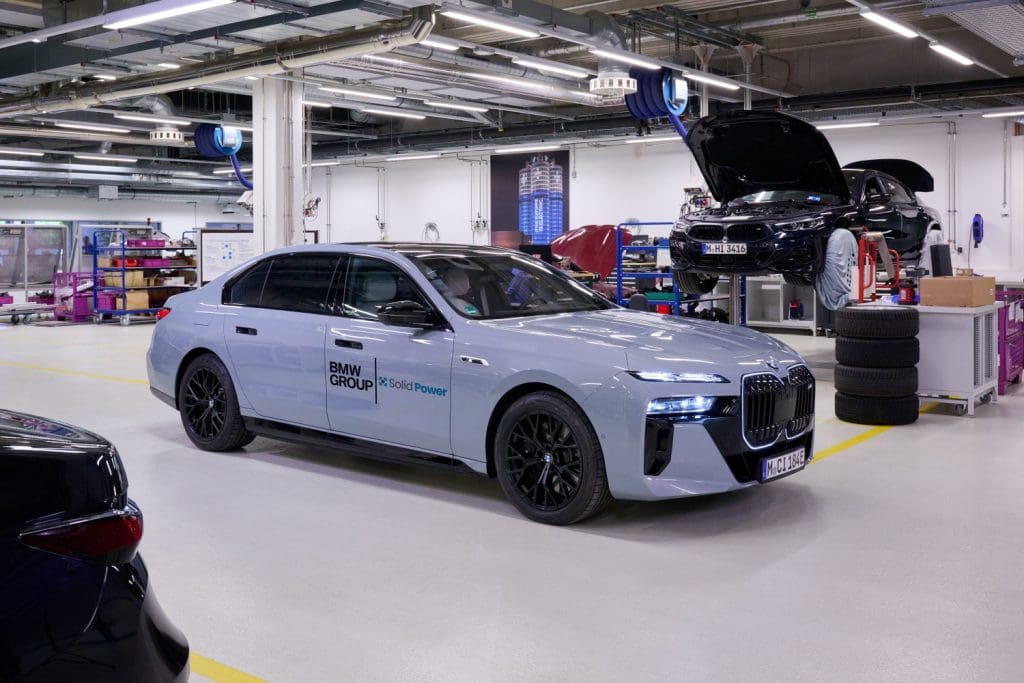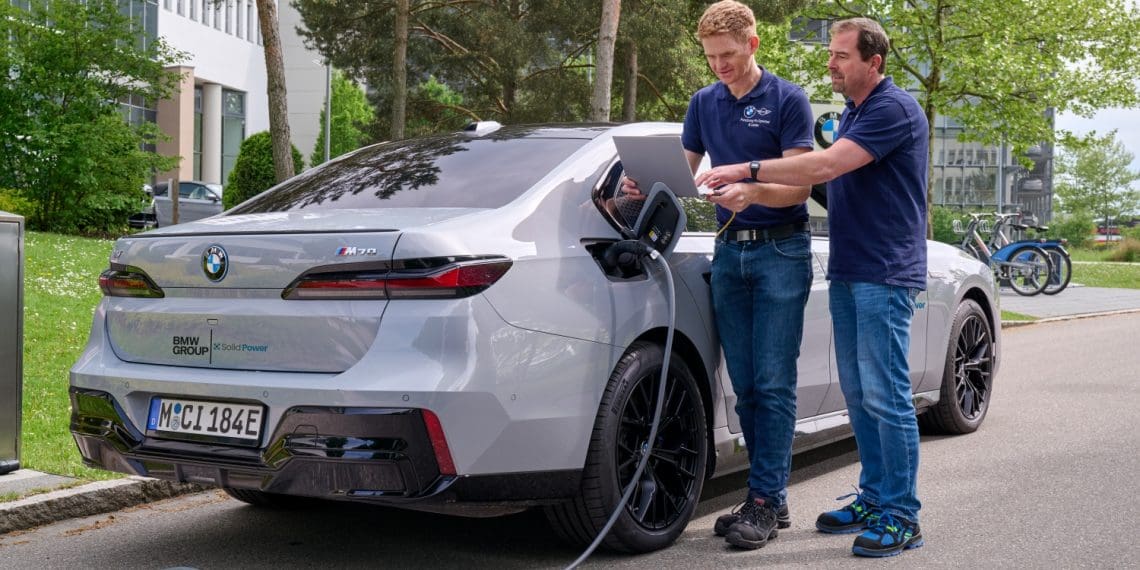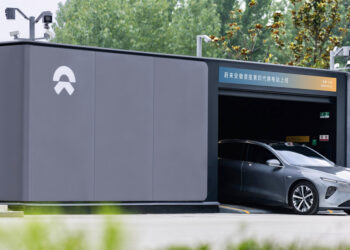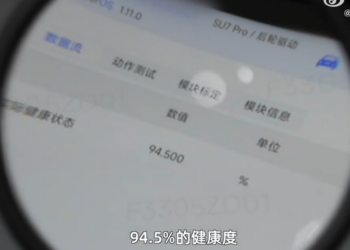BMW is testing solid-state batteries that will equip the next generation of the brand’s electric vehicles.
To that end, the Munich-based company equipped a BMW i7 with a solid-state battery from its partner, Solid Power, which uses cells that produce a higher density but are smaller and lighter than the lithium-ion batteries currently used by BMW. In simple terms, this means that more energy can be stored in smaller batteries.
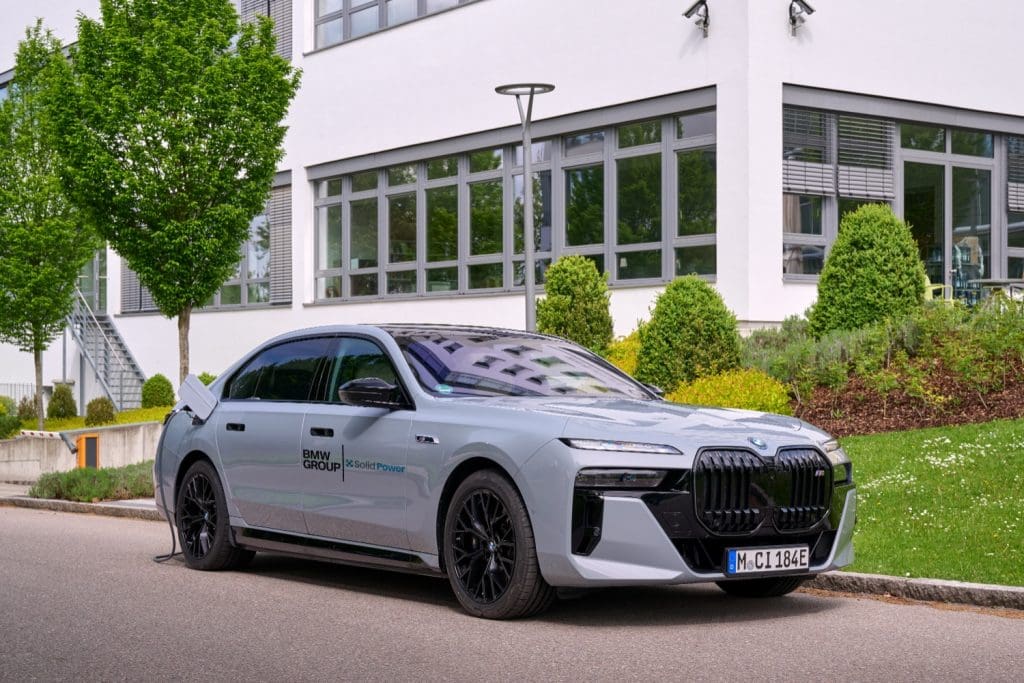
BMW and Solid Power believe in the potential of ASSB technology, meaning that large-format pure cells have the potential to achieve greater ranges in vehicles without the disadvantages related to the weight of the overall storage system.
“Solid Power is proud that the partnership with BMW has resulted in the first demonstration of solid-state battery cells in a vehicle,” said John Van Scoter, President and CEO of Solid Power. “We believe in low-energy battery cells (ASSB) and continue to drive innovation of our sulfide electrolyte in support of the future of electric vehicles.”
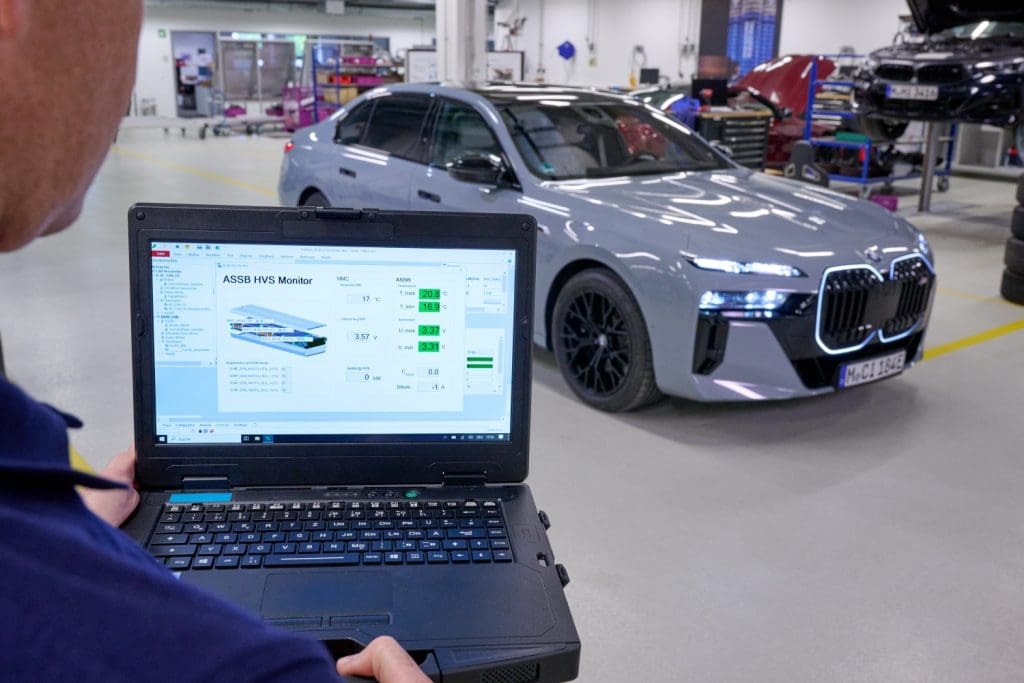
The prototype battery integrated into the BMW i7 combines proven principles of Gen5 construction (prismatic cells in modules) with new and innovative module concepts to integrate ASSB cells from Solid Power.
The German brand will now collect data over the next few months with tests to be conducted with the BMW i7, particularly regarding operational temperature and pressure.
It should be noted that solid-state batteries are considered the “Holy Grail” of 100% electric vehicles and are crucial for the future of electric mobility. They offer greater capacity and longer range than similarly sized batteries currently used by the automotive industry. Their simplified composition is lighter and less susceptible to temperature variations, in addition to allowing for faster charging.
